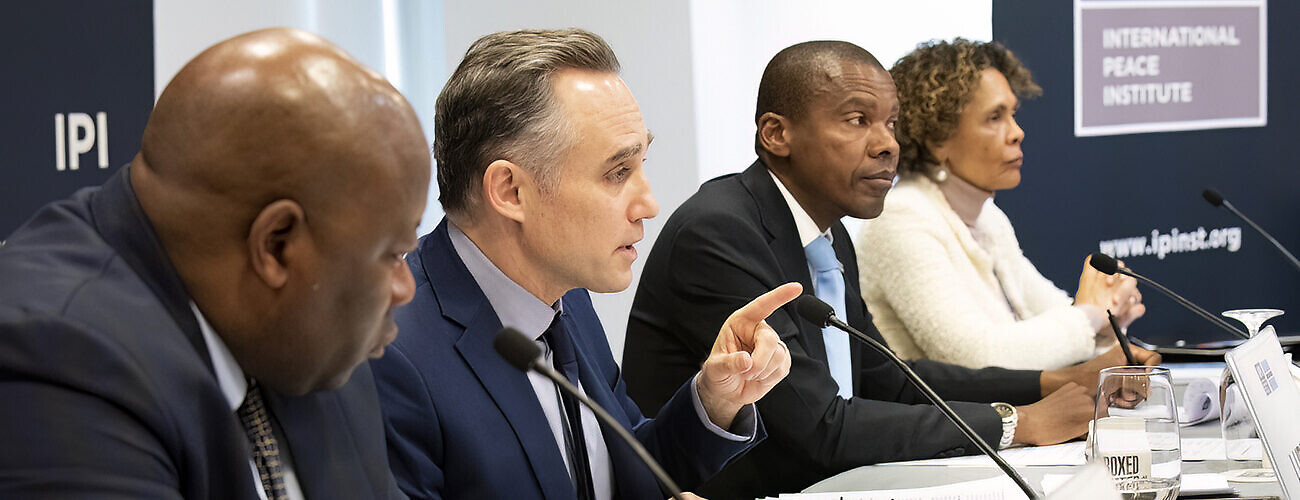IPI together with the Permanent Mission of the Republic of Botswana to the UN cohosted a ministerial-level policy forum on March 27th entitled “The Kimberley Process to Eradicate Conflict Diamonds: Twenty Years of Challenges and Achievements.”
UN General Assembly Resolution 55/56 addressed the role that diamonds can play in fueling armed conflict by creating the Kimberly Process (KP), an international certification scheme to limit the illicit trade in rough diamonds. This process has not only significantly reduced the number of conflict diamonds on the open market but also helped economies thrive based on the trade of this mineral. Current Kimberley Process chair Winston Chitando expressed his perspective that the KP mechanisms “have been largely successful,” while recognizing a Review Committee would be valuable to confront the challenges ahead.
Some countries still heavily rely on the diamond trade: in Botswana, for instance, it generates more than half of government revenue and accounts for more than one in twenty jobs. The Kimberley Process has faced criticism, however. Some argue that it does not take into account environmental impacts, labor rights, and human rights concerns in mining communities. Drawing on the example of energy for comparison, Cristina Duarte stressed the need to change the business model of natural resource management in Africa to increase domestic value creation.
On the week of the UN General Assembly resolution calling for reforms to enhance the effectiveness of the Kimberley Process, the question remains: Is the Kimberley Process still relevant after more than 20 years of existence? The KP is an institution which must be used as a vehicle for peace and sustainable development; review and reform will lead to a more relevant and effective process, emphasized Dr. Kwape.
Participants in this ministerial-level policy forum discussed how the Kimberley Process has helped weaken the link between conflict and diamonds and transformed local economies. They also discussed how issues such as environmental protection and human rights can become part of the certification scheme. IPI Vice President Adam Lupel noted that a critical issue for KP reform will be the debates around expanding the definition of “conflict diamond” beyond the funding of “rebel groups.” Ensuring the ethical and sustainable sourcing of diamonds is also a matter of improving state practices, listening to affected communities, protecting human rights, and safeguarding the environment.
Speakers:
H.E. Lemogang Kwape, Minister of Foreign Affairs, Republic of Botswana
H.E. Winston Chitando, Minister of Mines and Mining Development, Zimbabwe
H.E. Cristina Duarte, UN Under-Secretary-General and Special Adviser on Africa
Moderator:
Adam Lupel, Vice President and Chief Operating Officer, International Peace Institute








